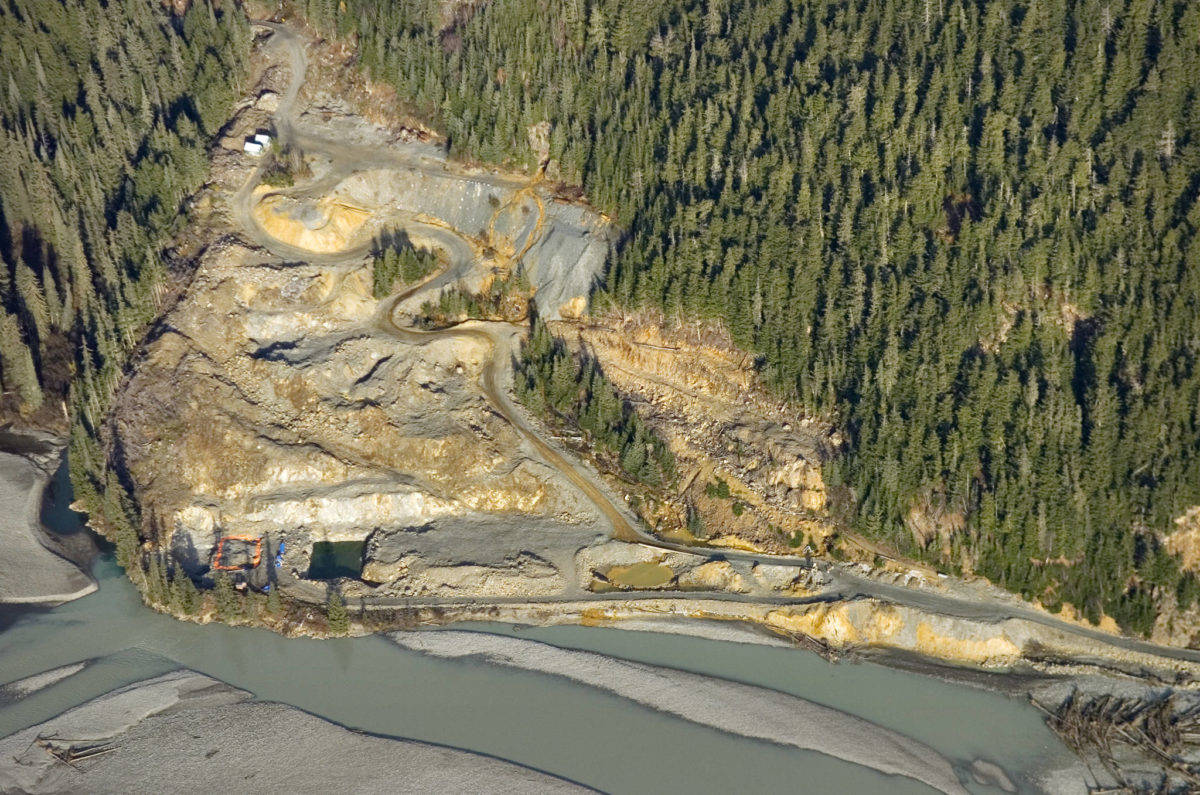By Jill Weitz
“Salmon at the crossroads. Time is running out.”
That was the title of Washington Gov. Jay Inslee’s 2020 State of Salmon in Watersheds report.
It’s an apt statement, true farther north, as well. With concerns for low returns in Southeast Alaska, the Taku and Stikine River king salmon will soon join the Unuk River kings as stocks of concern. Historically, these transboundary rivers have produced 80% of our region’s king salmon. However, within the spawning grounds at the headwaters of these rivers, British Columbia is aggressively pursuing unprecedented industrial development, including large-scale mining, many projects rivaling the size of the proposed Pebble Mine in Bristol Bay. While BC continues to double down on industrial development in these vital salmon watersheds, Canada’s Department of Fisheries and Oceans announced it was closing 60% of BC’s commercial fisheries due to poor returns and declining populations — some near 90% declines — resulting in the largest set of commercial salmon fishery closures in BC history.
Meanwhile, BC Premier John Horgan claims to champion the cause of salmon conservation and climate change, but continues to allow the mining sector, which is regulated by Gold Rush-era mining laws, to explore, develop, and pollute close to productive salmon-bearing rivers that flow from BC into Alaska and Washington, while undercutting risks and the efforts of those states to resolve the salmon crisis for future generations.
If anyone doubts the risks, just consider the Mount Polley tailings disaster — or the $60 million fine levied earlier this year on the Vancouver-based mining giant Teck, for discharging toxic waste into the waterways of southern BC that flow into Montana and Idaho.
Teck’s own research found that the fish populations in a transboundary tributary it polluted had been almost wiped out.
BC’s current “polluter pays” policy is a “get off scot-free” reality. It’s that policy that has left the abandoned Tulsequah Chief mine polluting the Taku River for more than 60 years, while the province has resisted holding Teck Resources, a historical owner and liable party, responsible. And it’s a policy that has led to more than a $1 billion shortfall for cleanup security.
This spring, Alaska lawmakers wrote to Premier Horgan expressing concern about the dozen mines in exploration or operation in the headwaters of rivers that flow from BC into Alaska, and warning that a tailings dam breach at one of these upstream operations – like the one that occurred in the Fraser River watershed at Imperial Metals’ Mount Polley Mine seven years ago this past Aug. 4 – could have major negative environmental and economic impacts on downstream economies and way of life. The BC government has thus far left it to the mining industry to respond.
Contrary to what the BC government portrays to investors and the public, their own internal reports suggest that they are not actually a responsible mining jurisdiction. BC laws are inconsistent with their commitments to Indigenous communities; their compliance and enforcement regime does not protect human health or the environment; and they lack bonding requirements and financial assurance from mining companies to ensure responsible development and clean up when mines close or companies go bankrupt. Bottom line, mining can and must be done better in our shared salmon rivers. That is why Salmon Beyond Borders and the Southeast Alaska Indigenous Transboundary Commission are calling for a permanent ban on mine waste dams in transboundary rivers, as well as a temporary moratorium for the permitting of new and the expansion of existing mines near transboundary waterways, until the US-Canada Boundary Waters Treaty of 1909 and the United Nations Declaration on the Rights of Indigenous Peoples are upheld and an international agreement for watershed protections is implemented.
The time has come for President Joe Biden and Prime Minister Justin Trudeau to step up. Will they actually help save wild Pacific salmon and the Alaska / Pacific Northwest’s wild salmon culture and way of life, or will they continue to let Premier Horgan and the BC mining industry boost the irresponsibly regulated industrialization of critical wild salmon habitat — affecting downstream communities and future generations in the process?
• Jill Weitz is a resident of Lingít Aaní, Juneau, Alaska. She serves as the director of Salmon Beyond Borders and as a Board Member of the Juneau Economic Development Council.

